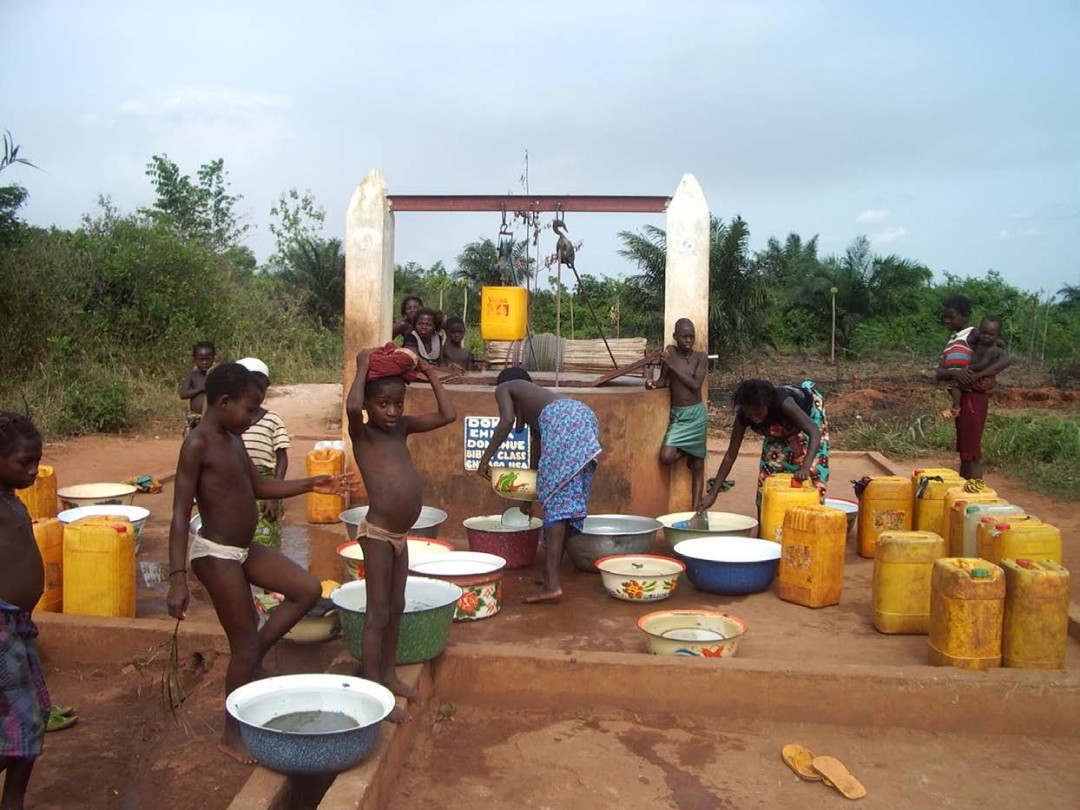Training for sustainable water management
Initiative Développement (ID) aimed to increase the professional capabilities within the communes of Toffo, Zé, Kpomassé (57,000 inhabitants), in south Benin, helping them to sustainably manage their public water services. The project’s goal was to accompany the emergence and professional development of the private sector operators to which the local councils delegated the exploitation of their water supply systems, and to enable competent technical and financial monitoring of these activities. The project also included the promotion of improved hygiene practices.
By the end of the project, the training provided to the public and private sector water supply operators had enabled the technical, financial, administrative and commercial management of the water services to become more efficient. Beneficiary populations had an improved access to drinking water of better quality, thanks to the extension of the network. This represented in particular 20km of new pipelines in the communes of Zé and Kpomassé and 25 new public fountains. Over 50% of the farmers had improved their water management skills and the public had been educated about daily water management and improved hygiene practices. The technical monitoring of the water supply system remained a limited success, as the method had not been fully adopted by the technical services.
Initiative Development (ID) is a French association that supports disadvantaged communities in developing countries, while strengthening and encouraging the emergence of local development stakeholders. ID also aims to facilitate access to food, health care, drinking water, sanitation, housing, education and renewable energy.
Type
Community Development / HealthDuration
July 2012 - June 2015Location
Toffo, Zé and Kpomassé commune / BeninWith whom
Initiative Development (ID)
Website

Benin
Population
11.2 million (2017)
Per Capita Income
USD 800/year (2017)
Poverty rate *
40% (2015)
Literacy rate
33% (2016)
Human Development Index
163rd out of 189 countries (2018)
Benin has implemented important economic and structural reforms over the past decade leading to notable improvements in human development. Despite moderate GDP growth, 4 to 6% per year over the past two decades, poverty remains widespread and on the rise. Significant challenges remain in the health sector, with child and maternal mortality remaining high. With one of the lowest literacy rates in the world (33%), the quality of education still requires improvement. The share of public expenditure for the health and education sectors has significantly dropped over the past two years (from 7 to 4% and from 23 to 4.4%). Efforts are needed to ensure equity on geographical distribution and in particular better management of the two sectors.
Sources: World Food Program, UNICEF, World Bank, 2016 Human Development Report, Human Development Indices and Indicators (2018 Statistical Update)
*The percentage of the population living below the national poverty line.